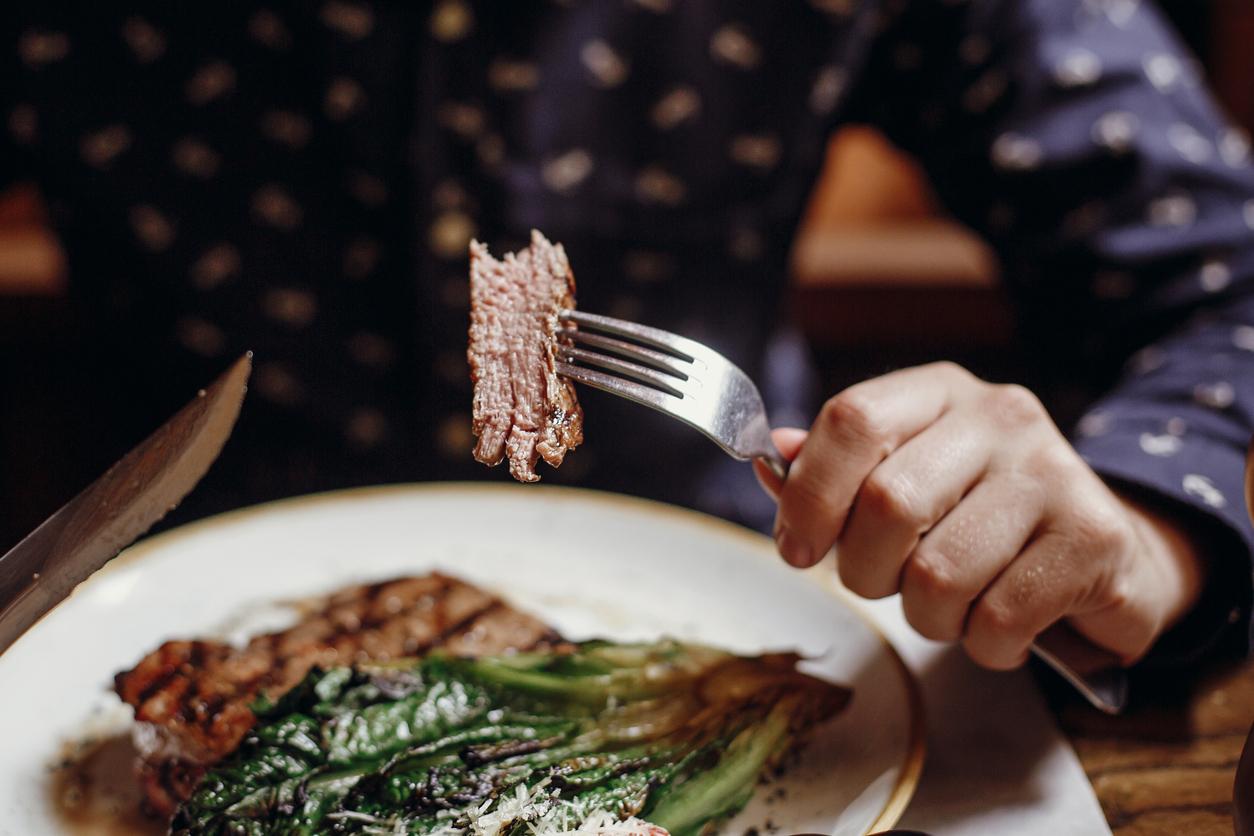To limit the risk of cerebrovascular accidents (CVA) linked to the consumption of red meat, it is preferable to cook red meat with olive oil.

- Using plenty of animal fat increases the risk of having a stroke by 16%.
- Consuming more vegetable and polyunsaturated fats reduces the risk of having a stroke by 12%.
- The type of fat consumed is more important in preventing a stroke than the amount.
Consuming red meat regularly increases the risk of cardiovascular disease. One of the increased risks for the heart is cerebrovascular accidents (CVA). In a study presented during the 2021 Scientific Sessions of the American Heart Association, researchers suggested that the latter risk can be reduced by favoring olive oil for cooking red meat.
Daily red meat increases stroke risk
The study indicates that the type of fat consumed is more important in preventing a stroke than the amount. To achieve this result, the researchers of the Harvard School of Public Health analyzed 27 years of data collected from 117,136 participants across two follow-up studies. The participants were 50 years old on average, 63% women and none had heart disease and cancer at the start of the study. Every four years, the participants provided information on their eating habits.
During the study, 6,189 participants had strokes. Those who used animal fats had a 16% increased risk of having a stroke than those who ate the least. In addition, those who consumed the most vegetable and polyunsaturated fats were 12% less likely to suffer a stroke. In addition, those who ate red meat daily saw their risk of having a stroke increase by 8%, and this figure even climbed to 12% among those who ate processed red meats. Finally, dairy fat in products such as cheese, butter, milk, ice cream and cream was not associated with a higher risk of stroke.
Adopt a healthy and balanced diet
In view of the results, Fenglei Wang, the lead author of the study, recommends “reduce the consumption of red meat, especially when it is processed” and to favor “vegetable oils such as olive oil, corn or soybean oils to reduce their risk of stroke”.
Researchers advise turning to other sources of protein, especially plant-based sources. “Key features of a heart-healthy diet are balancing caloric intake with caloric needs to achieve and maintain a healthy weight, choosing whole grains, lean and plant-based proteins, and a variety of fruits and vegetables; limit salt, sugar, foods of animal origin, fat, processed foods and alcohol; and apply these guidelines regardless of where the food is prepared or eaten”, added Alice H. Lichtenstein, when presenting the study.
.















